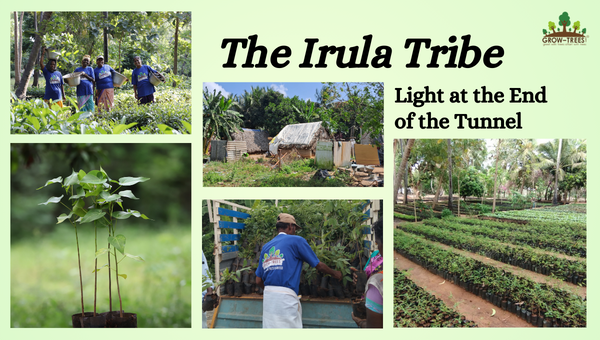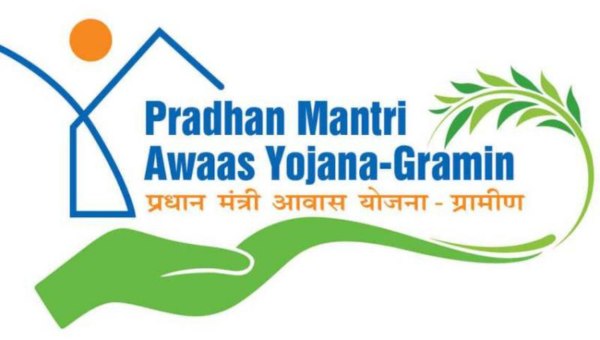In the quiet corners of rural areas, far from the bustling cities, lies a population often overlooked, yet deeply in need of support – the tribal community. Despite their rich cultural heritage, they find themselves grappling with systemic neglect and socio-economic disparities. However, the latest interventions from the Central and State governments promise to be a ray of hope.
The Pradhan Mantri Awas Yojana (PMAY), a flagship initiative, started by honourable Prime Minister Narendra Modi, emerges as a testament to the government’s commitment to providing tangible support to these marginalised communities. Under this initiative, eligible beneficiaries are assured of acquiring a pakka house, marking a significant stride towards addressing the housing needs of tribal populations.
Recognising the unique vulnerabilities of certain tribal groups, the central government has identified 75 Particularly Vulnerable Tribal Groups (PVTGs) across the nation. One such tribal group is the Irula tribe.
The Irula Tribe
The Irulas are indigenous people from Tamil Nadu, whose ancestry can be traced back to Africa. Traditionally, they used to live in the forest and were involved in activities such as capturing snakes and harvesting honey. However due to stringent laws and dwindling resources, many find themselves working as labourers and struggle to make ends meet. They live in mud huts with straw roofs and dirt floors, with no access to electricity. These structures were vulnerable to weather-related disasters including hurricanes, storms and droughts, underscoring the need for a pakka house.
The implementation of PMAY-G (Gramin) by the Chief Minister of Tamil Nadu, M. K. Stalin, has been instrumental in uplifting these communities. This initiative not only provides shelter but also inspires a sense of security and dignity within these communities. Apart from housing, concerted efforts have been made to ensure access to essential amenities such as clean drinking water, sanitation facilities, education, healthcare, and nutrition. Furthermore, initiatives aimed at enhancing infrastructure, including road and telecommunication connectivity, have been put in place to facilitate long-term socio-economic development among the Irula tribe and similar marginalised groups.
The Irula’s Connection to Forests
The connection of the Irula tribe to the forest remains integral to their livelihood. Environmental issues, coupled with deforestation have made things more difficult for them. To address these concerns, Grow-Trees has developed a project, Trees for Tribals®, Eastern Districts, Tamil Nadu. They have successfully planted 2,95,000 trees to revive the green cover, aiming to establish a vital lifeline for this community.
As part of the project, Grow-Trees has strategically planted trees surrounding the pakka houses of the Irula tribe. This initiative aims to provide essential benefits such as shade, fruits, and other produce, enriching their nutritional intake. By establishing these green spaces, Grow-Trees not only enhances the environment but also contributes to the overall well-being and sustenance of the community.
The tree species selected have been carefully chosen to maximise benefits for the Irula tribe, focusing on their nutritional value and medicinal properties. Everything serves a specific purpose: the roots act as a tonic and laxative, the flowers are utilised in treating conditions such as leprosy and skin diseases, the fruits are not only edible but also aid in promoting hair growth and treating anaemia, and the leaves are valuable as fodder for livestock.
Despite residing in their new pakka houses, the Irula tribe continues to grapple with the entrenched issue of casteism, which confines them to living outside the village perimeters and even denies them entry into certain regions. This social segregation has severely limited their options for livelihood and sustenance. Grow-Trees’ tree plantation will offer some relief in the form of food sources and forest produce. Additionally, they have created opportunities for equitable employment aimed at empowering the tribe members so that they can turn their lives around.
Empowering Women
Grow-Trees introduced training programs focused on life skills, such as pickle making, aimed at empowering women within the Irula tribe. These initiatives serve a dual purpose: not only do they provide an additional source of income for the women, but they also foster independence and self-reliance. By extending beyond traditional tree plantation efforts, Grow-Trees demonstrates a commitment to holistic social upliftment and sustainable community development. Let’s hear about the impact of this project from a woman beneficiary.
A Word from an Irula Tribe Beneficiary
Maheshwari, from Marakkanam district, Tamil Nadu
“Coming from a very poor family, we struggled to financially support our son’s education. Once I started working with Grow-Trees, I was able to earn enough to send my son to college and afford food & transportation costs. I feel respected by my husband and my community after undertaking this noble endeavour. Thank you, Grow-Trees.”
The overwhelmingly positive response from the Irula community signifies the start of a new chapter in their lives – one filled with promise, opportunity and enduring light at the end of the tunnel.






